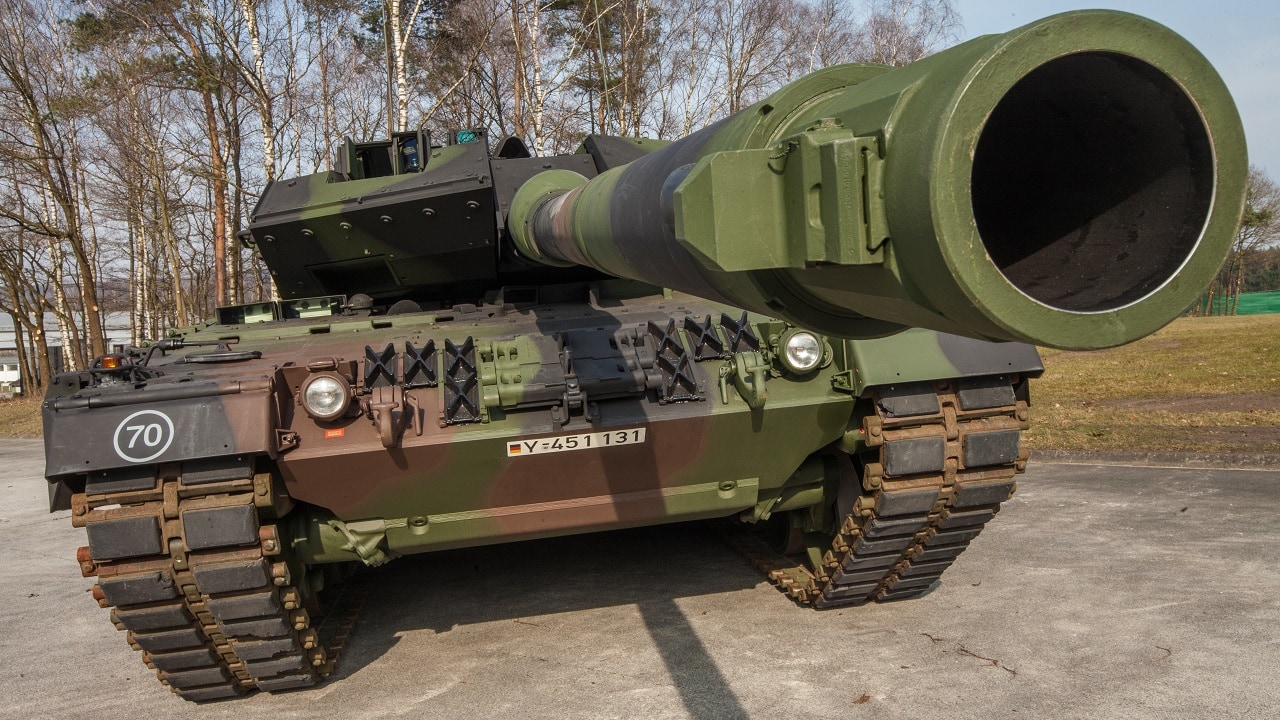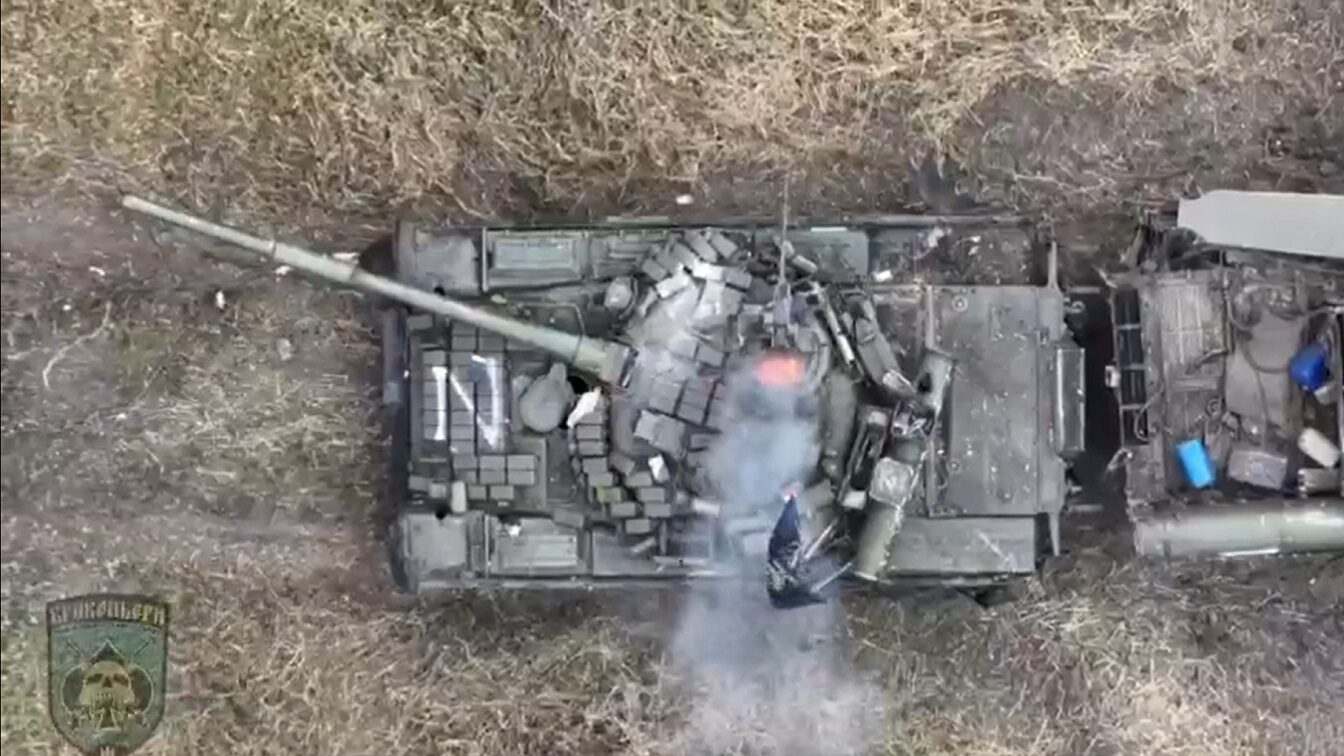Article Summary: The debate over Ukraine joining NATO is heating up. Supporters argue that Ukraine’s NATO membership would bolster European security, deter Russian expansion, and enhance the alliance’s military strength with battle-hardened Ukrainian forces.
Key Point #1 – Critics warn of potential escalation with Moscow, but history shows that NATO expansion has helped curb Russia’s imperial ambitions. With record-high public support in Ukraine, NATO could send a clear message that the West is no longer intimidated by Putin.
Key Point #2 – As Russia’s war drags on, the question remains: Should Ukraine finally join NATO and redefine European security for decades to come?
Should Ukraine Join NATO? The Debate That Could Reshape Europe
Whether or not Ukraine should be admitted to NATO is a constant debate these days. There is also more than one argument for or against the former Soviet republic becoming a member of the alliance.
What is striking are two aspects of the arguments. One is that there are several cases to be made in the affirmative.
Those supporting the idea are due to the benefits to the other alliance members in particular and Europe in general if Ukraine is brought in as a member. The other is that there is a rationale for why almost all the other former Soviet satellite, Warsaw Pact states in Eastern Europe, eventually became members – and the impact they have had on Moscow is equally, if not more relevant in the case of Ukraine.
Lastly, a body of history is connected to Ukraine’s bid to become a NATO member. It has been the country’s goal for more than three decades. In the early days, Ukraine made more effort than most other aspirant nations and even some newly-minted NATO members in some instances to earn that membership.
Ukraine Joining NATO: Who Really Benefits
Many of those who oppose Ukraine’s NATO membership suggest that it is a one-way proposition – that only Ukraine gains from admission. This argument does not hold water in that the history of Ukraine’s quarter of a century as a NATO partner proves the relationship has had payoffs for both sides.
If one side has gained disproportionately from the NATO-Ukraine dynamic, it is quite possibly the alliance members further to the West and not Kyiv.
All of the historical evidence is that NATO’s shifting toward the East has restrained an increasingly expansionist and re-colonizing Russian state.
One of the commentators confirming the impact of NATO on the Kremlin’s imperialist ambitions is the long-time BBC Moscow Bureau Chief Steve Rosenberg. As he pointed out last year in a comment for Newsweek, there is now a giant electronic billboard on one of the main roads in Moscow that reads, “Russia’s borders do not end anywhere.” As he sees it, Putin’s appetite for conquering new territory knows no bounds.
As an assessment by the Atlantic Council points out, it also concludes there are no limits to where Putin is willing to use his troops to invade any of the nations in the region that – as he explained to Tucker Carlson – historically “belong to Russia.”
As the Council’s essay points out, “NATO enlargement did not prevent Russia from launching imperial wars. It did make sure that those wars took place further east” instead of in Poland, Romania, Bulgaria or Finland.
Reasons For Admission
The chief reason that is always raised against bringing Ukraine into NATO would be a “dangerous escalation” in an already contentious relationship with Russia.
The Biden Administration’s big mistake in this regard, says more than one commentator, was that it escalated in the least intelligent manner possible.
Rather than risk that escalation in the diplomatic sphere where Putin is the weakest, Washington escalated on the battlefield instead. This is where Moscow had the most advantages, hence the war’s prolongation for three years now.
Occupants of the White House have been warned for decades that, eventually, Russia would be back to claim the lands it used to occupy and rule at the point of a bayonet, but they frequently did not want to hear the message.
In 1993-94, Poland’s Lech Wałęsa and Czechoslovakia’s Václav Havel cautioned Bill Clinton that NATO had to bring in their countries and other new members whenever possible. If not, they told the US President, Russia would eventually return to claim as much of its former empire as its armies could occupy.
Fortunately for them, NATO enlargement became US policy. The war of the Russian imperial empire building they were afraid of was not visited upon them. Instead, almost 30 years later, it was waged against Ukraine.

NATO Leopard 2 Tank. Image Credit: Creative Commons.
A more recent Atlantic Council essay lays out five reasons that Ukraine should be part of the alliance even though it is presently at war with Russia.
– NATO standing up and pushing Russia back and out of Ukraine would prove that Putin’s plan to re-build the empire can never succeed. It could force Moscow’s elite to change course and become a constructive member of the international community.
– Having Ukraine’s force as part of NATO would be the biggest military boost in the alliance’s history. Ukraine now has the largest, most adaptive army in the world and one that understands the modern battlefield better than any other. What it can teach the rest of the alliance is invaluable.
– The Article Five portion of the NATO charter. Having Ukraine covered by this security umbrella would keep Russia from pushing further into other neighbouring non-NATO nations.
– The Ukrainian public support NATO membership at a higher percentage than almost any of the other alliance members. A big political plus-up for Brusells.
– Lastly and more significantly, refusing to listen to Putin’s threats and having Ukraine as a member would mean that the collective West is not intimidated anymore by Moscow.
“This could be the most important by-product of this war,” said a Polish colleague who runs his own defense company in Warsaw. “To make this a world where people are no longer afraid of Russia. It would be liberating. The world needs and Putin dreads it. Therefore, it is the right and most correct step to take.”
About the Author: Reuben F. Johnson
Reuben F. Johnson is a survivor of the February 2022 Russian invasion of Ukraine and is now an Expert on Foreign Military Affairs with the Fundacja im. Kazimierza Pułaskiego in Warsaw. He has been a consultant to the Pentagon, several NATO governments and the Australian government in the fields of defense technology and weapon systems design. Over the past 30 years he has resided in and reported from Russia, Ukraine, Poland, Brazil, the People’s Republic of China and Australia.

